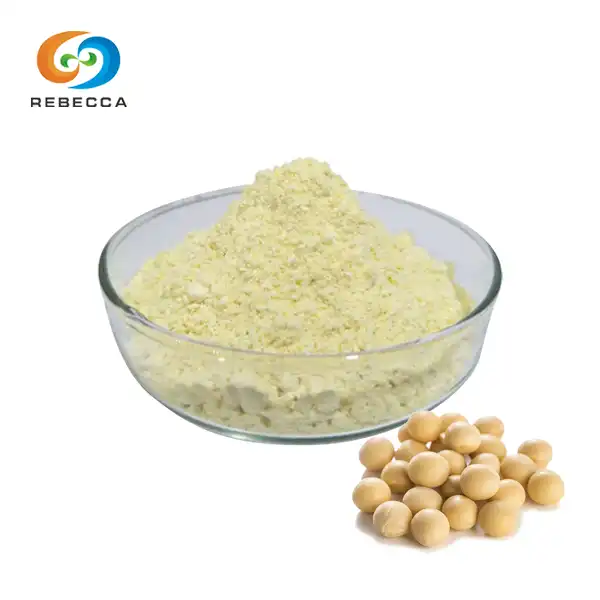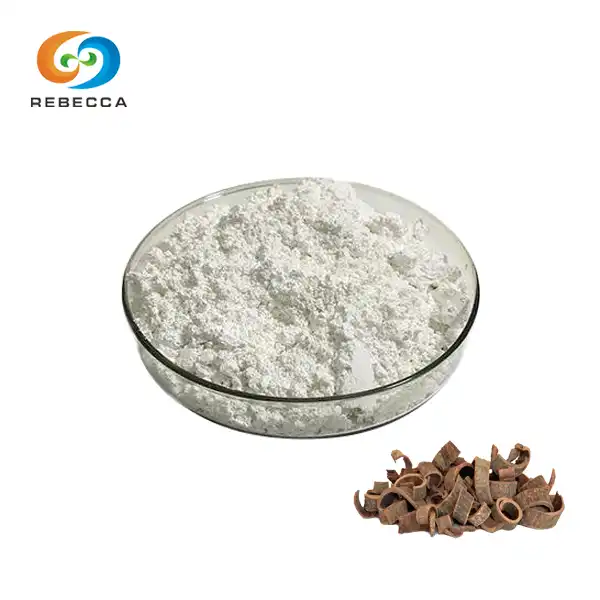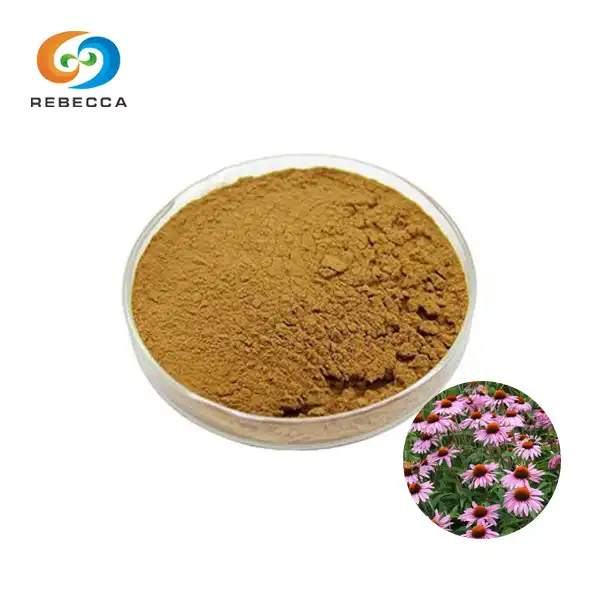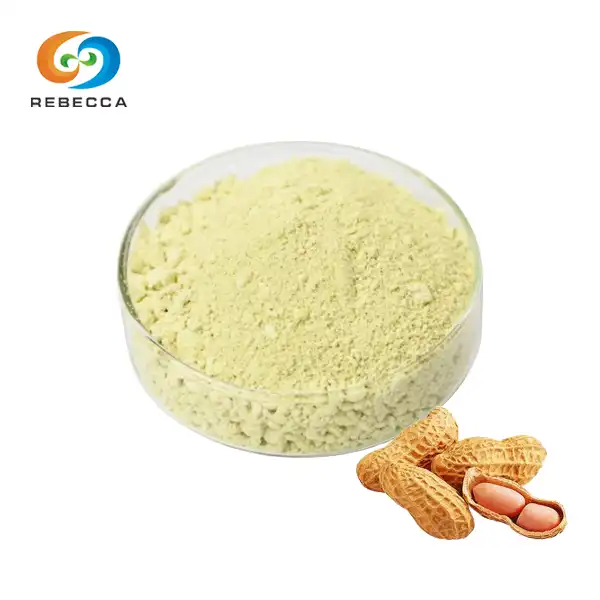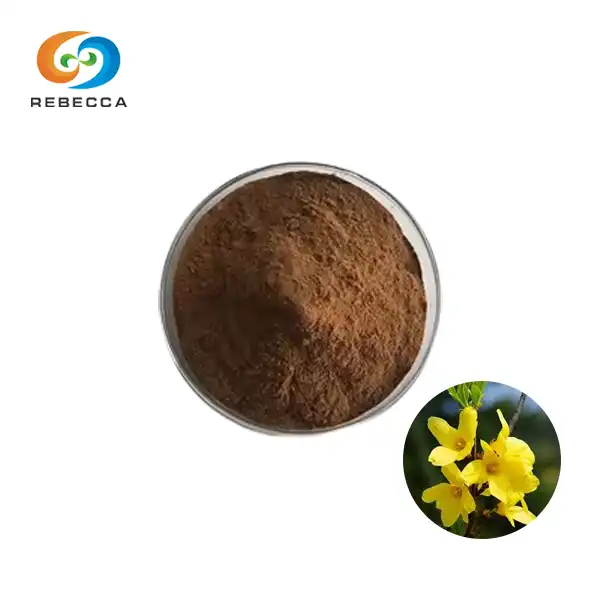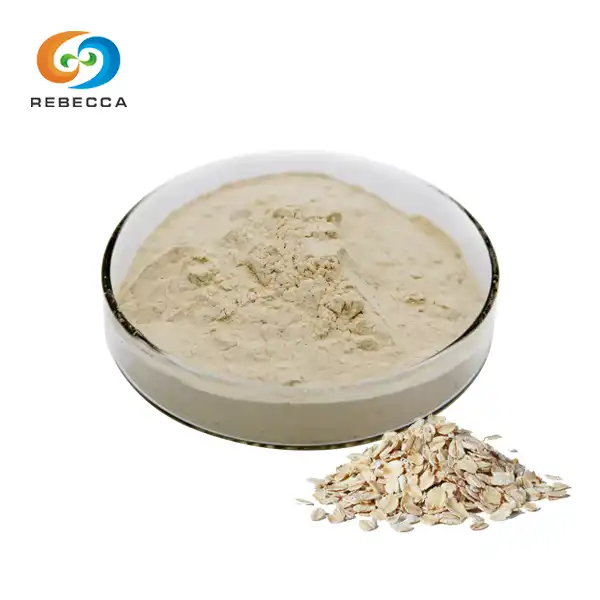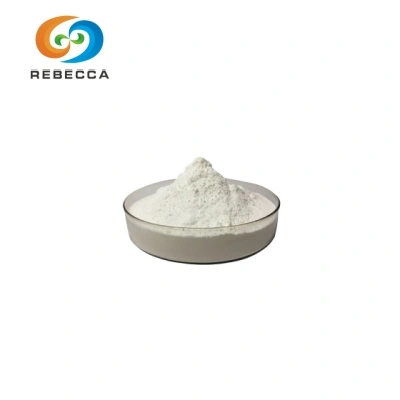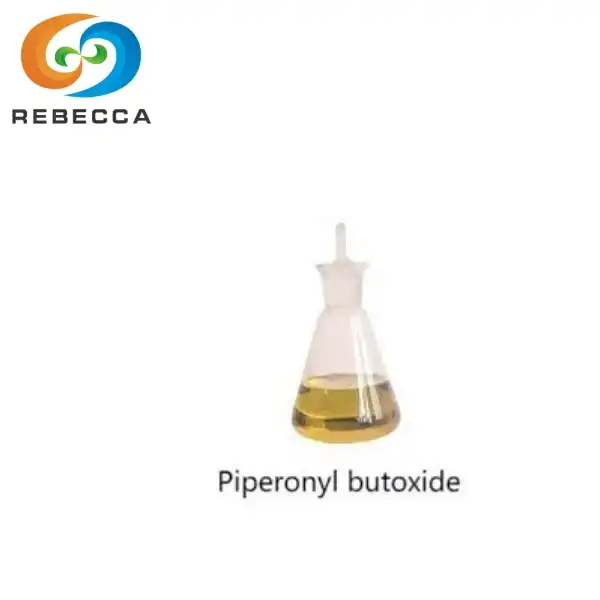What Are The Benefits Of Curcumin?
Turmeric Extract is an extract from the dried rhizome of the ginger plant Curcuma longa L.. The main bioactive substances are Curcumin and curcumone, which have the effects of lowering blood pressure, lowering blood lipids, choleretic, antibacterial, anti-inflammatory and antioxidant effects. Curcumin is a very important pigment compound that can prevent the auto-oxidation of linoleic acid in food and has anti-cancer and anti-cancer functions. It has been widely used as a natural high-quality food pigment.

Chemical Composition
The main chemical components are volatile oil and phenolic pigments. The main phenolic pigments are Curcumin, demethoxycurcumin, and bisdemethoxycurcumin. The main components of the volatile oil are cineole, linalool, α-terpinene, clovene, aromatic curcumene, zingiberene, curcumaol, curcumone, aromatic curcumone, dehydrocurcumadione and gemmarone. Contains campesterol, stigmasterol, β-sitosterol, cholesterol, fatty acids and metal elements potassium, sodium, magnesium, calcium, manganese, iron, copper, zinc, etc.
Pharmacological effects
1. Inhibit tumors
Growth curcumin alcohol extract has a cytotoxic effect on lymphocytes and Dalton lymphoma cells. Intraperitoneal injection of curcumin liposome preparation can inhibit the generation of Dalton lymphoma cells in mice and increase the survival rate of the mice. 12-Oxo-tetradecanoylphorbol acetic acid is a tumor promoter that produces skin tumors in mice. For example, if TPA combined with curcumin is applied topically to mice twice a week for 20 weeks, and 7,12-dimethylbenzene[α]anthracene is used as a tumor initiator in advance, curcumin can inhibit the tumors produced by TPA. number.
2. Choleretic effect
Turmeric decoction and infusion can increase bile secretion in dogs, return bile components to normal, and increase gallbladder contraction. Its effect is weak and long-lasting, lasting 1 to 2 hours. Its choleretic effect is related to its lowering of blood lipids. Curcumin or its sodium salt has a choleretic effect, and intravenous injection into dogs can reduce the content of solid components and increase bile secretion. 50% turmeric decoction can increase appetite.
3. Anti-peroxidation
Curcumin in Turmeric Extract can significantly antagonize the peroxidation of the brain, heart, liver, kidney, and spleen homogenates of NIH mice. Within a certain dose range, the intensity of its effect is dose-dependent.

4. Anti-pathogenic microorganisms and protozoa
Curcuma alcohol extract and its active ingredients can inhibit the growth of most bacteria that cause cholecystitis, including Sarcina, Gavageococcus, Corynebacterium, Streptococcus and other bacilli. However, even if high concentrations are used, the effect on All Gram-negative bacilli, some yeasts and molds tested were not sensitive. Curcumin alcohol extract and volatile oil have bactericidal effects, while curcumin is only a bacteriostatic agent against Staphylococcus aureus. Curcuma longa ether and chloroform extracts have inhibitory effects on several pathogenic skin fungi in vitro, and turmeric volatile oil 1:10 can inhibit the growth of different pathogenic fungi. Curcuma alcohol extract has anti-histomoebic effects in vitro.
5. Anti-mutagenic effect
Rats were fed various doses of turmeric (mixed into the feed) for 3 months, and then intraperitoneally injected with benzopyrene or 3-methylcholanthrene. Using Salmonella typhi bacteria to detect the mutagenicity of urine, rats fed with more than 0.5% turmeric can inhibit the mutagenicity of benzopyrene or 3-methylcholanthrene, and turmeric does not affect the food intake and weight gain of rats. , there was no change in histological examination. Curcumin can inhibit the mutagenicity of several environmental mutagens (cigars, cigarette smoke, tobacco leaves and malt extracts, benzopyrene, dimethylbenzanthracene, etc.) in a dose-effect relationship. Curcumin can change Metabolic activation and detoxification of mutagens.
6. Antibacterial and anti-inflammatory effects
Curcumin and volatile oil parts have good antibacterial effects on Staphylococcus aureus. Turmeric extract has an inhibitory effect on a variety of fungi; curcumin has a significant inhibitory effect on experimental inflammation in mice and rats, has an anti-inflammatory effect on rheumatoid arthritis, and has a certain effect on reducing spermatic cord edema and tenderness.

7. Anti-fertility effect
Turmeric extract has a significant terminating effect on pregnancy in mice, rats and rabbits by antagonizing progesterone activity and contracting the uterus. Experiments have shown that turmeric decoction and infusion have exciting effects on isolated uteri and uterine fistulas in mice and guinea pigs. It strengthens the paroxysmal contraction of the uterus and can last for 5 to 7 hours, showing an anti-pregnancy effect.
8. Effect on gastrointestinal tract
Rats were given turmeric ethanol extract by gavage. It had a significant anti-ulcer effect on ulcers caused by high temperature restraint stress, pyloric ligation, indomethacin and reserpine, and showed very significant protection against gastric damage caused by cyst destroyers. effect. Turmeric ethanol extract not only significantly thickened the gastric mucosal wall, but also restored the content of non-protein sulfhydryl groups in the gastric glands of rats.
9. Effect on cardiovascular system
Curcuma alcohol extract showed inhibitory effects on frog hearts in vitro and in vivo. Intravenous injection into dogs can cause blood pressure to drop and breathing to be excited. Its antihypertensive effect is not affected by atropine and vagus nerve cutting. If ergot extract is injected first, its antihypertensive effect can be reversed into a blood pressure increasing effect. Administering curcumin can increase myocardial nutritional blood flow in mice. Oral administration of turmeric extract can antagonize pituitaryin-induced myocardial ischemia in rats.
10. Hypolipidemic effect
Taking turmeric extract, curcumin, and volatile oil orally orally, it has obvious effects on lowering serum cholesterol and β-lipoprotein in rats and rabbits with experimental hyperlipidemia, and can also reduce liver cholesterol and correct β- and α-lipoprotein. Disproportionality, but has no effect on endogenous cholesterol, and can also reduce triglyceride and cholesterol content in the liver of the aorta of hyperlipidemic rats.
11. Anticoagulation and inhibition of platelet aggregation
Oral administration of curcumin alcohol extract or curcumin can inhibit ADP-induced platelet aggregation in hyperlipidemic rats. Curcumin can enhance fibrinolytic activity. Turmeric ether extract can inhibit arachidonic acid-induced human platelet aggregation and the production of thromboxane B2 (TXB2), while increasing the products catalyzed by lipoxygenase.
12.Other functions
Turmeric extract and curcumin can enhance fibrinolytic activity, protect the liver, and resist liver fibrosis. Turmeric decoction has an analgesic effect on postoperative inflammation and surgical site pain; turmeric decoction has an inhibitory effect on hepatitis virus. It also has the effect of improving liver parenchymal lesions.
